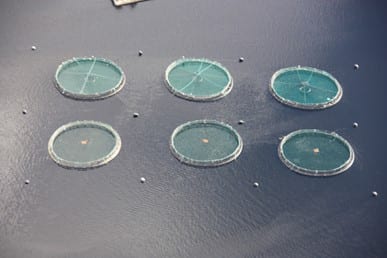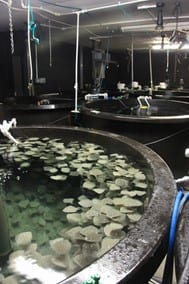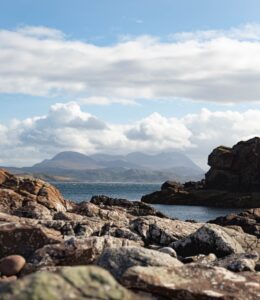Welcome to the MASTS Sustainable Aquaculture Forum
This Forum is focusing on promoting sustainable supply from the Scottish aquaculture sector. It provides research and advice relevant to developing sustainable aquaculture and encompasses the entirety of the Scottish aquaculture sector, including fin-fish, invertebrates and algae.

The pace and scale of aquaculture development in Scotland has been accompanied and underpinned by the growth of world leading aquaculture research expertise in our Universities and research institutes, many of whom have been at the heart of European and wider international efforts to develop sustainable aquaculture.
The forum encompasses the entirety of the Scottish aquaculture sector, including fin-fish, invertebrates and algae. Multidisciplinary research is critical to support the ecological, social and economic aims of the aquaculture industry, and MASTS is working with the industry to achieve these aims.
Scotland has been proactive in developing a robust and effective policy and regulatory framework for aquaculture. MASTS research contributes through helping reduce the losses related to disease and parasites, diversifying marine fish and algae production, managing and genetically improving farmed species, replacing and reducing marine ingredients within aquafeeds, site design including contained production systems and colocation with marine renewables development, and ensuring a sustainable and ethical supply of food for the future.

Paper on “Equality, diversity and inclusion: A way forward for aquaculture in Scotland.”
Published after a MASTS ASM 2022 workshop on EDI in Scottish Aquaculture by Ingrid Kelling and Ibrahim Lawan (2023).
Read the paper here!

Ingrid Kelling
– Heriot-Watt University
Dr | Assistant Professor | Global Research Institutes & The Lyell Centre
Interests: Fisheries, aquaculture, small-scale fisheries, global value chains, marketing seafood, food security, wellbeing economy | Large and small-scale projects in developing countries, particularly Southeast Asia and seafood markets in Europe.
Adam Hughes (UHI-SAMS), Alastair Lyndon (Heriot Watt University), Ben Seaman (NatureScot), Colin Adams (Glasgow University), Crawford Revie (University of Strathclyde), Dave Little (University of Stirling), Gregg Arthur (NAFC Marine Centre), Heather Jones (SAIC), Iveta Matejusova (Marine Directorate), Jill Barber (Marine Directorate), Kevin Scott (St Abbs Marine Station), Michael Montague (SEPA), Michele Stanley (UHI-SAMS), Neil Hazon (University of St Andrews), Nick Wade (University of Edinburgh, Roslin Group) and Sam Martin (University of Aberdeen).

MASTS was founded in 2009 to be a unique collaboration between marine research organisations, government and industry.
Charity Number: SC045259
Company Number: SC485726



We’re working behind the scenes to bring you a suite of useful, and updateable, resources including:
If you would like to be updated when the resources section is live please let us know.